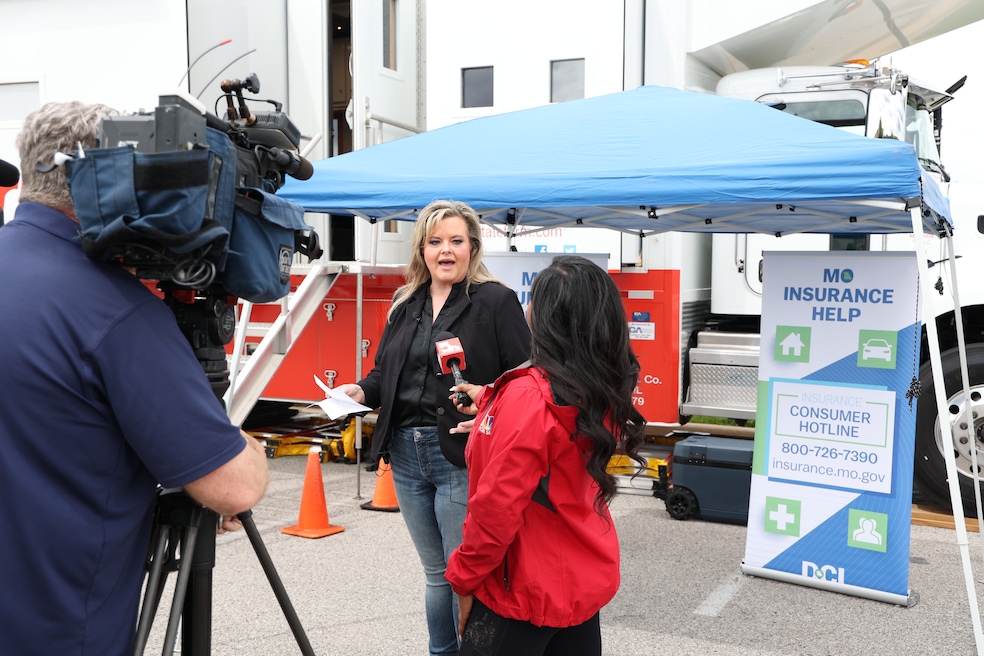At a time when natural disasters plague states across the country, many homeowners are looking for suggestions on how to address rising premium costs and a dwindling set of options. Angela Nelson has some ideas.
Nelson, who heads Missouri's Department of Commerce and Insurance, takes a common-sense approach to the dance between insurance companies and their customers. It takes two to tango, in her view.
The U.S. Chamber of Commerce invited Nelson to its first annual "Building for Growth: Housing Solutions for a Stronger Economy" in Washington, D.C., in November. Homes.com connected with Nelson to hear her thoughts.
This interview has been edited and condensed for clarity.
You say it's important for homeowners to change their mindset on property insurance. How so?
We frequently hear people say, "I’ve paid premiums for 10 years, I deserve to have this," and I always say ... the question comes down to how much more are you willing to pay, because that’s the core question. Insurance companies are private companies. At their core, what they’re doing is collecting premiums. They pool them together and they manage those funds on our behalf as policy holders. What we have charged them to do is do it in a way that’s most cost effective, because we want our premiums to be as low as possible ... We have to go back and realize that as homeowners we do have responsibility to maintain our own house.
I’ve had conversations within my own family where folks have said, "You know, I need a new roof, but I’m going to wait until the next hailstorm comes through and hope that the insurance company pays to replace my roof." They can do that. That’s ultimately what the policy says, but that’s going to mean that if you do that and everybody else does that, that pool of money that needs to get collected to cover all of those claims gets a whole lot bigger. It just means we’re all paying a whole lot more for it.
If I’m looking at the circumstances right now and how people are struggling, we have conversations about affordability and I’m looking at the uninsured rate where people don’t have mortgages and for whatever variety of reasons, they are choosing to not purchase homeowners' insurance, I’m raising an alarm to say we need to get back to the basics. Insurance is there to help us recover from the devastations of life, not the aggravations of life. If we all maintain that mindset, we can bring premiums back down.
Some states allow owners who pay off their mortgage to forgo property insurance. How important is insurance for those owners who can sell their land or live in a mobile home on their site should a natural disaster hit?
I just want to make sure people are making truly an informed decision. I think it’s always a question of you may not be able to afford or may not want to pay for the highest level of insurance coverage, but do you want to think of paying for something? Are you going to have the resources to go through your home and financially replace all those items? It’s not even about the structure. You have to think about you’re going to lose everything potentially and do you have the financial wherewithal to do that?
They may not be able to afford the Cadillac homeowners' insurance policy or maybe they have a high deductible to bring those premiums down, but if there is something truly catastrophic, then you have something to start rebuilding your life with.
Many homeowners — with or without a mortgage — opt to forgo property insurance due to the cost. You see a path toward affordability. How do we get there?
We need to build homes smarter. We need to invest a little bit more on the front end. It’s the simple things like when you lay the plywood on the roof and tape the joints [you take extra precaution to seal the seams] so that if shingles are ripped back that you’ve got protection and water doesn’t seep into the house. That doesn’t cost all that much, but the potential that it saves could be thousands and thousands of dollars.
Building codes are a difficult conversation, because nobody likes to be told what to do, but in some cases some of these things are just good common sense and they’re not expensive. The potential savings they could bring to us as a state or as a country are just immense.
[Another thing to do is] shop insurance every two to three years. In many instances, people just kind of put it on cruise control once they buy it. It comes out of their mortgage, they are escrowed and they don’t even think about it.
They can ask about increasing deductibles. Even if they can get a policy that may not be a full replacement cost, maybe an actual cash value policy if they don’t have a mortgage, maybe that’s an option for them. It may not pay to completely rebuild their home if it’s destroyed, but they would have something, they would have something to replace a lot of the stuff in their house, too. In my mind, finding a good [insurance] agent to navigate them through that process, help them shop and get the coverage that they need at the best price available is the single best thing we can tell them.

